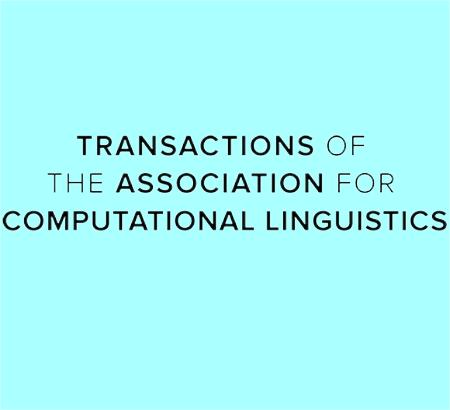依赖解析与回溯使用深度强化学习
IF 4.2
1区 计算机科学
Q2 COMPUTER SCIENCE, ARTIFICIAL INTELLIGENCE
Transactions of the Association for Computational Linguistics
Pub Date : 2022-06-28
DOI:10.1162/tacl_a_00496
引用次数: 0
摘要
摘要NLP中的贪心算法(如基于转换的解析)容易出现错误传播。克服这个问题的一种方法是,在新证据与目前所探索的解决方案相矛盾的情况下,允许算法回溯并探索替代解决方案。为了实现这样的行为,我们使用强化学习,并在这样的行为获得比继续探索当前解决方案更好的奖励的情况下让算法回溯。我们在词性标注和依赖项解析上测试了这个想法,并表明回溯是对抗错误传播的有效手段。本文章由计算机程序翻译,如有差异,请以英文原文为准。
Dependency Parsing with Backtracking using Deep Reinforcement Learning
Abstract Greedy algorithms for NLP such as transition-based parsing are prone to error propagation. One way to overcome this problem is to allow the algorithm to backtrack and explore an alternative solution in cases where new evidence contradicts the solution explored so far. In order to implement such a behavior, we use reinforcement learning and let the algorithm backtrack in cases where such an action gets a better reward than continuing to explore the current solution. We test this idea on both POS tagging and dependency parsing and show that backtracking is an effective means to fight against error propagation.
求助全文
通过发布文献求助,成功后即可免费获取论文全文。
去求助
来源期刊
CiteScore
32.60
自引率
4.60%
发文量
58
审稿时长
8 weeks
期刊介绍:
The highly regarded quarterly journal Computational Linguistics has a companion journal called Transactions of the Association for Computational Linguistics. This open access journal publishes articles in all areas of natural language processing and is an important resource for academic and industry computational linguists, natural language processing experts, artificial intelligence and machine learning investigators, cognitive scientists, speech specialists, as well as linguists and philosophers. The journal disseminates work of vital relevance to these professionals on an annual basis.

 求助内容:
求助内容: 应助结果提醒方式:
应助结果提醒方式:


